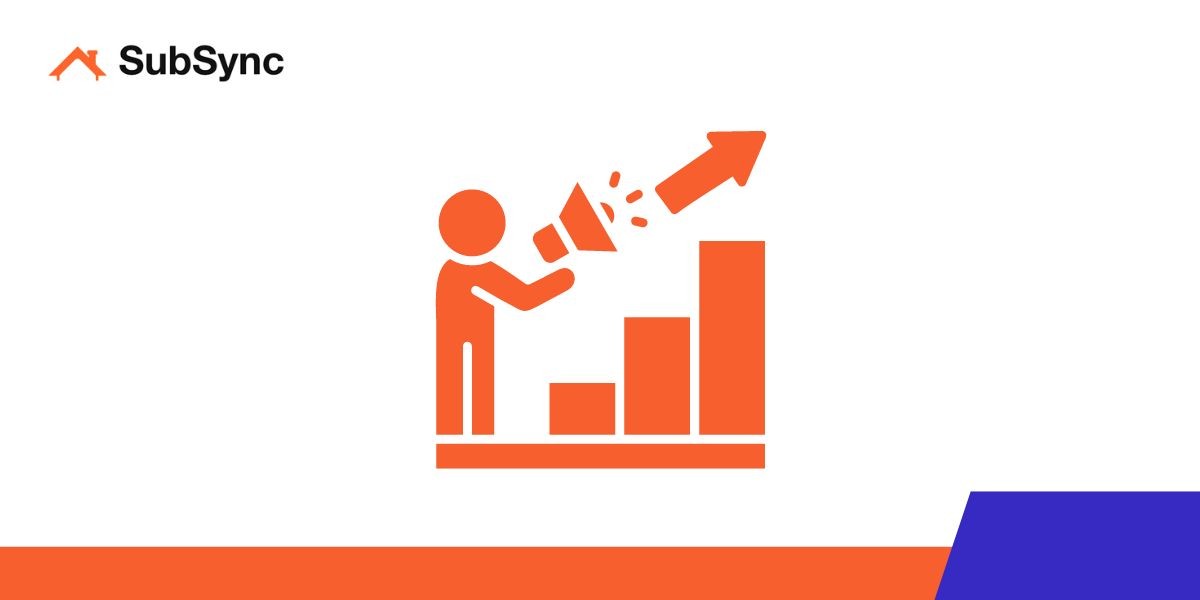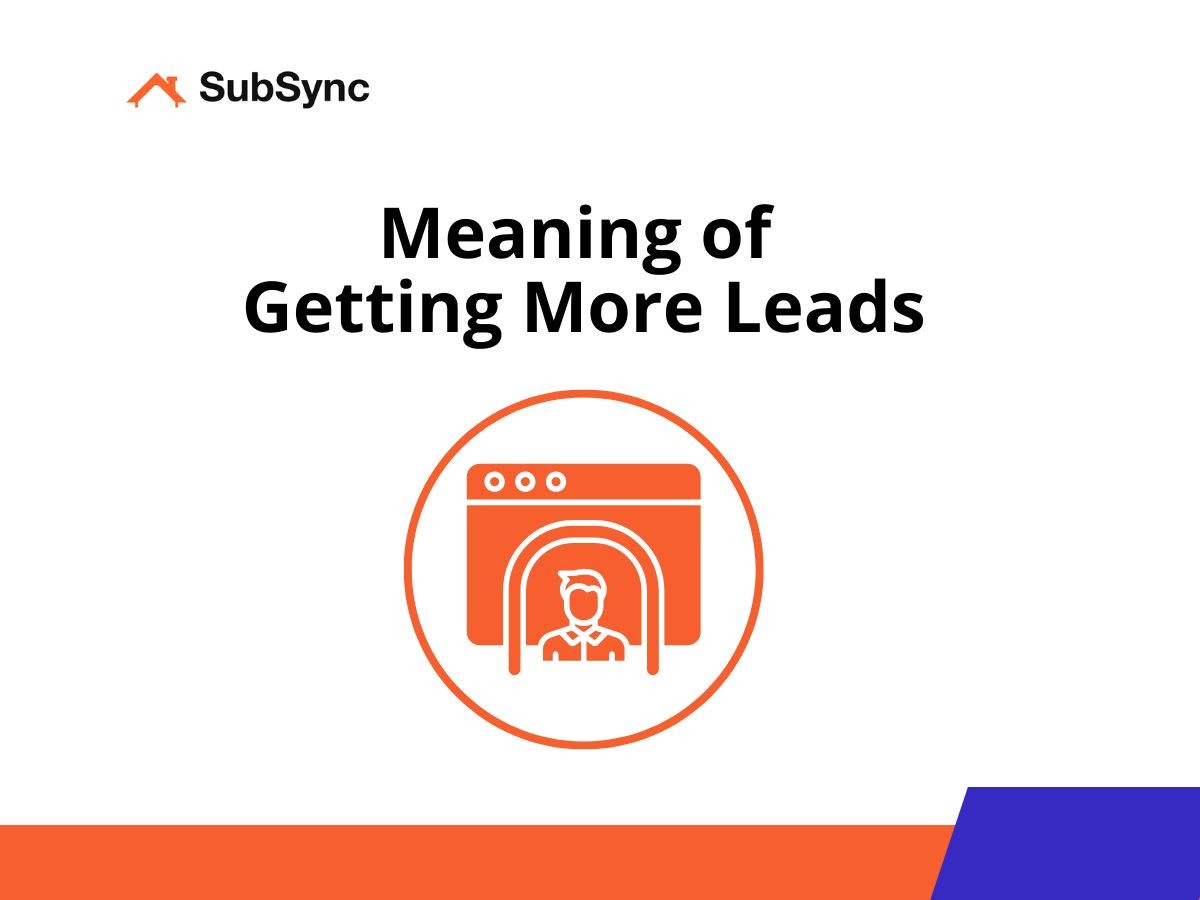What Does Get More Leads Mean? (2025 Update)
Sep 13, 2024
In this article, we will learn the meaning of generating more leads. We also share some strategies you can implement to generate more leads. Read on to learn more.

What Is the Meaning of Getting More Leads?
A lead in marketing refers to an individual who has indicated an interest in your company's products or services, typically through some form of engagement like filling out a contact form, subscribing to a newsletter, or initiating contact through a query.
So, when you get more leads and more people show interest, your chances to grow your customer base and improve your sales get better.
Example: A software company launches a targeted ad campaign for Adobe Photoshop CC, successfully generating 500 new leads. Each lead is a potential customer that the sales team will follow up with, aiming to convert their interest into software subscriptions.

Importance of Generating More Leads
Getting leads for you business is important for a number of reasons, some of the most common include:
Drives Business Growth: Leads are the foundation of a growing business. Without new leads, a company can’t expand or reach new markets. A local bakery may start an email campaign to capture leads and grow its customer base.
Increases Revenue: More leads equal more chances to make sales. A consistent flow of leads can boost profits and create steady growth. A car dealership that gets more leads through targeted ads is likely to sell more cars.
Builds Brand Awareness: Lead generation introduces more people to your brand. The more leads you attract, the more familiar your brand becomes in the market. A software company offering free eBooks or webinars builds awareness and trust among potential customers.
Targets the Right Audience: Lead generation helps you focus on people who are likely to be interested in your product. This saves time and ensures your efforts are more effective. A B2B company, for example, might use LinkedIn ads to target decision-makers in specific industries.
Improves Customer Engagement: Engaging with leads early builds a relationship with potential customers. This keeps your brand top of mind when they are ready to buy. A marketing agency could follow up with leads after a webinar to keep them engaged and interested in their services.
Provides Useful Data: Lead generation gathers important information about your audience. This data can help refine your marketing strategies and improve results. An online store, for example, might use lead data to adjust its product offerings based on customer preferences.
Strengthens Customer Relationships: Lead generation isn't just about getting new customers. It also helps maintain ongoing relationships, which can lead to repeat business and referrals. A subscription box company might send personalized emails to leads, building trust and encouraging future purchases.

Strategies to Get More Leads
Generating leads requires targeted strategies that attract the right audience. Below are some effective strategies with examples to illustrate how they work.
1. Create High-Value Content
Offer valuable resources like blog posts, guides, or videos that solve common problems your target audience faces. This attracts potential leads and builds trust in your brand. Always include a clear call-to-action (CTA) that encourages visitors to share their contact details, like signing up for a newsletter or downloading a free resource.
Example: A real estate agent could create a guide called “10 Tips for First-Time Homebuyers.” Visitors who download the guide provide their email, becoming leads for the agent to follow up with.
2. Use Targeted Social Media Ads
Run ads on platforms like Facebook or Instagram that target specific demographics, interests, or behaviors. Make sure your ad includes a clear offer, like a discount, free consultation, or special deal to capture interest and motivate action.
Example: A local restaurant could run an Instagram ad offering a “Buy One Get One Free” coupon for their new menu. The ad could target people in the local area interested in dining out, turning them into leads when they claim the offer.
3. Optimize Your Website for SEO
Use relevant keywords throughout your website to help your business rank higher on search engines. This allows potential leads to find your site when searching for solutions you offer. Make sure your website is fast and mobile-friendly to provide a good experience for visitors.
Example: A landscaping company could optimize their website with keywords like “affordable lawn care services” or “best garden design near me.” This makes it easier for people searching for these services to find the company’s website and become leads.
4. Offer Free Trials or Demos
Giving potential customers the chance to try your product or service without any commitment increases the likelihood they’ll become paying customers. A free trial or demo provides value and builds trust with your leads.
Example: A software company offering project management tools could provide a 30-day free trial. During the trial, they can follow up with leads through email to answer questions and provide tips on how to use the tool effectively.
5. Implement Email Marketing Campaigns
Segment your email list based on your lead's behavior or interests. Send personalized messages tailored to their needs, such as product recommendations, exclusive offers, or helpful content. This keeps your leads engaged and builds a relationship over time.
Example: An online clothing retailer might send targeted emails to leads who abandoned their shopping carts. The email could include a special discount to encourage them to complete the purchase, turning a lead into a customer.
6. Run Google Ads for High-Intent Searches
Set up Google Ads to show up when people search for terms directly related to your product or service. Target keywords that indicate the person is ready to make a purchase, like “buy,” “get a quote,” or “best prices.”
Example: A plumbing service could run Google Ads targeting keywords like “emergency plumber near me” or “affordable drain cleaning services.” When people in need of immediate plumbing help search for these terms, the ads direct them to the company’s website to request a service, turning them into leads.
7. Host Webinars or Workshops
Hosting a webinar or an online workshop on a topic your target audience cares about can help you collect contact information and generate leads. After the event, follow up with attendees by providing additional resources or special offers.
Example: A digital marketing agency might host a webinar titled “How to Grow Your Business with Social Media.” Attendees sign up with their contact information, becoming leads. After the webinar, the agency follows up with an email offering a free consultation to help them develop a social media strategy.
We hope that you now have a better understanding of why lead generation is important and how lead generation strategies can help your business.
If you enjoyed this article, you might also like our articles on:





